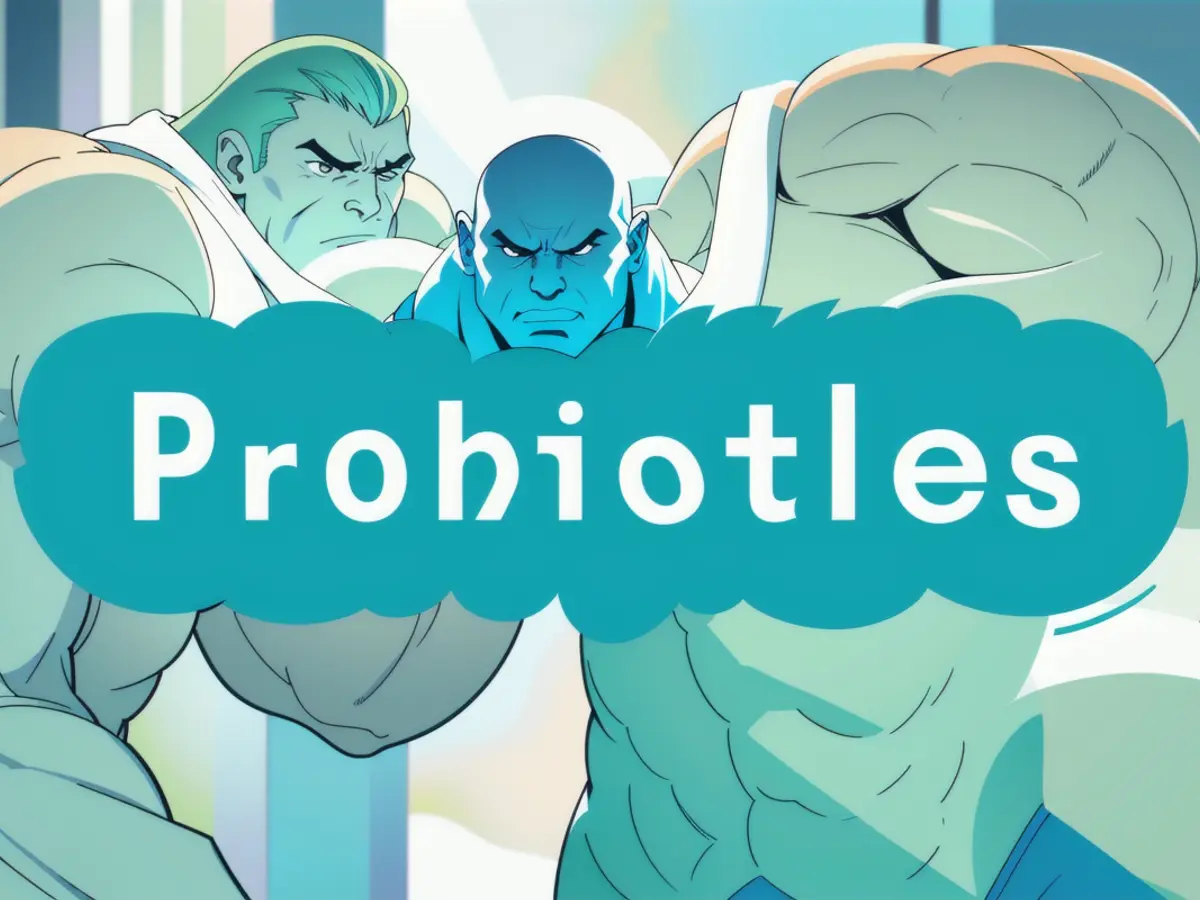Investigating Probiotics: Does the Research Back Up Their Praise?
Probiotics: Hype vs. Reality
Let's dive into the steaming cup of truth about probiotics, the live organisms found in yogurt, pickles, and supplements, famed for promoting a happy tummy. Are they the wonder drug of well-being, or just another fad? Two recent studies from the Weizmann Institute and Tel Aviv Medical Center aim to answer that question.
Examining Probiotics: Separating Fact from Fiction
Promoted as natural and safe, probiotics have swept the market with their claims to bolster our gut flora and enhance our overall health. But recent research paints a more nuanced picture, revealing both positive impacts and a host of variables that determine their effectiveness.
Back to Basics
To understand these findings, let's step back to the basics - the gastrointestinal tract, our body's very own highway. Here, countless microbes make their home and work tirelessly, breaking down food, fighting invaders, and supporting our immune system. Probiotics, with their promise to boost the gut flora, have seized the spotlight, but do they live up to expectations?
Microbiome Magic: A Closer Look
Previous studies have scrutinized the bacteria living in our gut by examining stool samples, but this method often falls short. For a more accurate measurement, these researchers hit the road less traveled - they analyzed the gut bacteria directly, using endoscopies and colonoscopies. The team studied 25 participants, with only 15 progressing to the next stage.
The participants were divided into two groups: one took generic probiotics, while the other took a placebo. After assessment, the gut bacteria were tested again, and finally, 2 months later.
The Resisters and Persisters
The researchers found that some individuals simply expelled the probiotics - they labeled them as resisters. On the other hand, some people's guts accepted the new microbes as guests, successfully colonizing their intestines - these individuals were called persisters.
Amazingly, the team could predict, by analyzing an individual's original microbiome and gut gene expression, which group they'd fall into. When comparing stool analysis with direct sampling, they found only a partial correlation, illustrating that stool samples may not be a reliable proxy to assess gut flora.
Probiotics and Post-Antibiotic Recovery
The second study tackled a different question: After a course of antibiotics, which clears the microbiome, should we pop a probiotic? The researchers investigated this by splitting 21 participants into three groups:
- A control group that allowed their microbiomes to recover naturally
- A group that took the same probiotics used in the first experiment
- A group whose original microbiomes were reinstated using an autologous fecal microbiome transplant (aFMT)
The participants who took the standard probiotics saw rapid recolonization, but the probiotics' swift takeover prevented the participants' normal bacteria from repopulating for months. In contrast, the aFMT group saw a return to normalcy in just a matter of days.
The Universal Probiotic Myth
Contrary to popular belief, these findings reveal the potential for adverse side effects of probiotic use with antibiotics, possibly leading to long-term consequences. In contrast, replenishing the gut with one's own microbes proved to be a more effective and personalized treatment.
As the researchers conclude, probiotics should not be considered a universal supplement. Instead, they may be tailored to the needs of each individual, based on factors like age, underlying health conditions, and personal gut flora composition.
All in all, the evidence suggests that while probiotics may hold health benefits, their impact varies greatly among individuals. The gut microbiome is a complex web of interactions, which is highly variable between each person. Trying to modify it with a simple intervention was perhaps an overly optimistic assumption.
For more research-backed information about the microbiome and its role in your health, visit our dedicated hub.
- Probiotics, which are famous for promoting a healthy gut, have been promoted as a natural and safe supplement to bolster gut flora and enhance overall health, but recent research suggests a more nuanced picture.
- To understand the findings, it's essential to understand the gastrointestinal tract, our body's highway, where countless microbes make their home, breaking down food, fighting invaders, and supporting the immune system.
- In a study, researchers analyzed the gut bacteria directly using endoscopies and colonoscopies, finding that some individuals resisted probiotics while others persisted, allowing the new microbes to colonize their intestines.
- In another study, researchers found that taking probiotics after a course of antibiotics could lead to adverse side effects and long-term consequences, as the swift takeover of probiotics prevented the participants' normal bacteria from repopulating for months.
- Consequently, it was suggested that probiotics may not be a universal supplement but tailored to the needs of each individual, based on factors such as age, underlying medical conditions, and personal gut flora composition.
- The health benefits of probiotics may vary greatly among individuals, and the gut microbiome is a complex web of interactions that is highly variable between each person, making it a challenging system to modify with a simple intervention.







